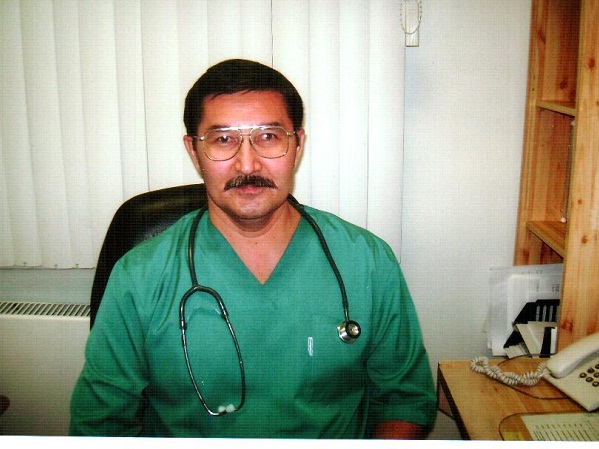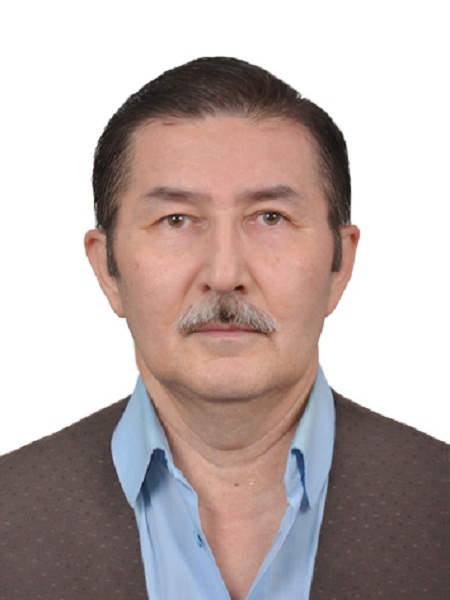The old man Nobody
The old man Nobody
In one neighborhood, in a small town, there lived many different people. Some of them were good and some were not very good, although they mostly lived in peace with each other. Sometimes, it even seemed that they were really friends. The neighbors shared one another’s joys and sorrows and everyone knew all there was to know about each other; there were no secrets.
Nevertheless, no one knew anything about the old man who lived out the last of his years in the small town. Some neighbors and curious children tried to find out anything they could about him, but he remained silent in response to their questions or answered evasively, “I’m nobody. I am just living my days.” Because of that, the neighbors called him the “old man Nobody.”
Three ill-natured, old women who spent their days sitting on a wide bench in the middle of their yard, gossiping about neighbors, began to spread rumors about his supposedly criminal past. The drunken, local policeman blabbed out to the old women that the man was a prisoner in a Soviet labor camp. They believed that nobody would be imprisoned without guilt, so the old women presumed that he was punished for the betrayal of the Motherland during the war. This conclusion seemed confirmed by the fact that all the men of his age were fighting during the war, but the old man didn’t have any medals or social benefits for veterans. As a result of such tales told by the old women, neighbors began to give him the cold shoulder and even behave in a hostile way toward him, despite the unlucky old man, who had buried his wife a year ago, never did anything bad to anyone. He didn’t complain about the boys, who shouted all sorts of nasty things at his back and pelted him with snowballs or clods of dirt when he trudged to the grocery store.
Seeing that enmity against him, the old man got used to go into the yard to sit on the bench under the window of his small, ramshackle house and would go out for a breath of fresh air very early in the morning or after midnight, when everyone was sleeping. By doing this, he tried to keep himself out of sight of his neighbors as much as possible, saving them from being in his company, which proved unpleasant for them.
On 9 May*, the usually crowded yard between the houses became even more crowded because of the numerous delegations of pioneers** and representatives of the public. They visited war veterans, whom were living in the neighborhood, with congratulations and gifts. As was the custom in those days, people set the tables with food and drinks right in the courtyard. Tape recorders played songs from wartime. Grey-haired soldiers of the Great War were sitting in the places of honor. Their faces were shining as well as numerous medals on their worn-out jackets. The old man Nobody, of course, wasn’t invited to such celebrations.
While observing the festivities through his dusty window, he noticed that there was no place for him,. He recalled his war-filled days and the attacks and retreats, the day when his unit was surrounded by the enemy, his attempts to break through the encirclement, and his captivity and the tortures he suffered in different concentration camps***. He miraculously managed to escape and join the French partisans. They reinterpreted his name Ivan Petrovich Petrov in their own way and called him Jean-Pierre. As a member of the French Resistance, he fought bravely and looked death in the face many times, but survived. He met Victory Day with great hope of returning to his Motherland, to his beloved Alyona Ivanovna, who was stubbornly waiting for him, in spite of the death notice she received at the beginning of the war.
At long last, they have met again, thank God, but only in the mid-fifties, after ten years of the imprisonment of the “enemy of the people****” with his prisoner number S-957 in the Soviet forced labor camp. He was also stripped of his citizen’s rights and war medals. The investigator didn’t even delve into the circumstances of his falling into captivity, and the judge found him guilty. In the camp he heard many times every day, “You are nobody without name!”
Sometimes, he even didn’t want to live because of such a huge injustice to him and was tempted to jump out of the column of prisoners, when they were convoyed to or from work, in order to be shot for trying to escape. But something kept him from this desperate step. Maybe thinking about his wife Alyona. He came back to her after his imprisonment, and they lived in perfect harmony for many years, never cursing anyone and never feeling sorry for their own bitter fate.
Some years have passed. Once, in early May, to the surprise of all the people in the neighborhood, a huge foreign sparkling limousine with diplomatic plates drove into the yard. A dandified gentleman, who smelled of expensive perfume, stepped out of the limousine and right away began to ask people about a certain Jean Petroff, a partisan and a very good person. The regional military commissioner, who also stepped out of the limousine, explained that Ivan Petrovich Petrov, who lives here, is a hero of the French Resistance, to whom the French government has awarded the Order of the Legion of Honor, when they find the documents confirming his partisan glorious past.
All the neighbors bit their tongues at once when they understood that the old man Nobody is the person the French diplomats have been looking for. The three ill-natured old women, fearing the people’s anger, have to gossip without leaving home now. The boys are no longer acting naughty. They respectfully call the old man by his name and patronymic*****, Ivan Petrovich, and even help him in his daily routine. The old man has got back his citizen’s rights, and the regional military commissioner also has returned him his withdrawn awards, two soldiers medals “For Courage”.
There was only one thing upsetting the old man now. He is very sorry that his loyal wife, Alyona, who prematurely left this world, can’t see how his life has changed. But he hopes she will hear him from heaven, when he will drink a small shot of vodka for the peace of her soul on the memorial day of her death and tell her about his new life. He is sure she would be happy for him, who was unfairly forgotten for years, but then was returned to life by virtue of his heroic past. Such past can’t be forgotten, it helps us to cherish peaceful life and to build a future without wars and turmoil.
* 9 May or Victory Day is a holiday that commemorates the capitulation of Nazi Germany to the Soviet Union at the end of Second World War. It was first inaugurated in the Soviet Union, following the signing of the surrender document late in the evening on 8 May 1945 (after midnight, thus on 9 May Moscow Time). Victory Day was one of the major holidays in the Soviet Union, as well as in Russia today.
** The All-Union Pioneer Organization was a mass youth organization of the Soviet Union for children of age from 10 to 15 that existed between 1922 and 1991. Similar to the Scouting organizations of the Western world, pioneers learned skills of social cooperation and attended publicly funded summer camps.
*** During World War II, Nazi Germany engaged in deliberate extermination policies toward Soviet Union prisoners of war. This resulted in some 3.3 to 3.5 million deaths, about 60% of all Soviet prisoners. This figure may be contrasted with 8,300 out of 231,000 British and U.S. prisoners, or 3.6%.
**** The term enemy of the people in the Soviet Union was a fluid designation of a person who took any action against Soviet authorities or any action undermining or weakening of the external security of the Soviet Union (Article 58 of the Russian Soviet Federative Socialist Republic Penal Code). During and after World War II, Article 58 was used to imprison some of the returned Soviet prisoners of war on the grounds that their capture and detainment by the enemy during the war was proof that they did not fight to the death and were therefore anti-Soviet.
***** In Russia, the patronymic is an official part of the name.
About the author:
Valentin Egorov is a poet and short story writer. He was born September 5, 1957 in the city of Yakutsk in the Sakha (Yakutia) Republic, Russia, located about 280 miles south of the Arctic Circle. In 1983, he graduated from the Khabarovsk Medical Institute. He began writing in 1991, and now he is an author of nine books. Valentin Egorov was awarded the prize of International Fund “Children Of Sakha-Asia,” the Mikhailovy Public Literary Prize and the S.N.Sizykh Republican Ethnography Prize.




